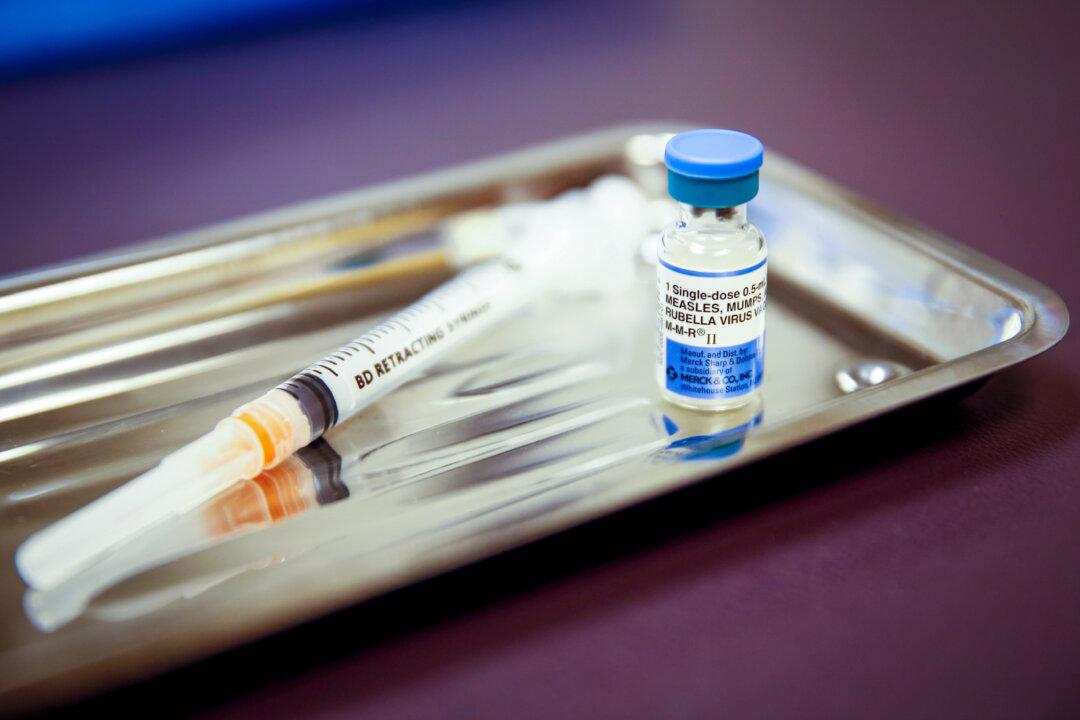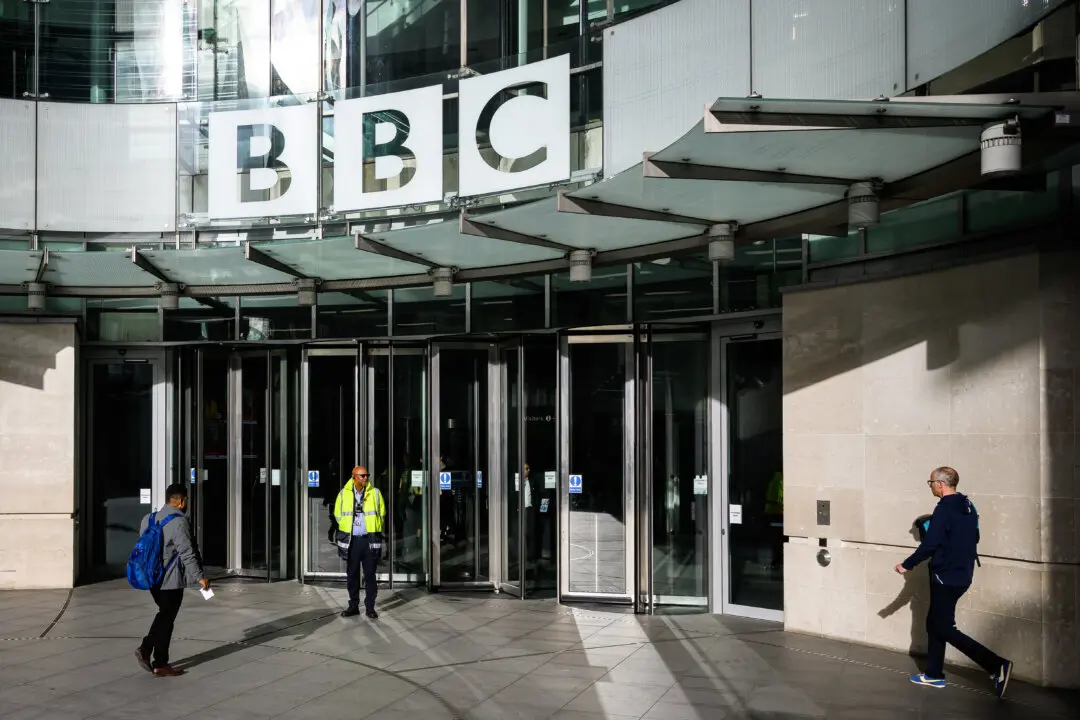Government health agencies are calling for all children and adults whose parents may have declined the MMR vaccine because of persistent links between the triple jab and autism to be inoculated now because of a Measles outbreak in Birmingham.
The UK Health and Securities Agency (UKHSA) has declared a national health incident after what it labelled a “surge” in cases of Measles, which is a relatively mild and self-resolving infection for the vast majority of children, but can occasionally be more serious, especially for those with underlying health conditions and pregnant women.
Between 2006 and 2016, there were four reported deaths from Measles, and prior to 2006, the last known death was in 1992. Over the 20-year period from 2020-2202, a total of 23 people died of the illness.
The NHS said it will contact a million children and young adults aged between 11 and 25 in London and Birmingham to offer them the MMR jab which it will make readily available through “pop-up” clinics in schools and community centres as well as at GP practices.
There were 1,603 suspected cases of Measles in the UK in 2023 according to the UKHSA, up from 735 in 2022 and 360 in 2021. The latest outbreak is in the West Midlands, where uptake of both recommended doses of the MMR is around 80 percent by age five.
The UKHSA said that as of Jan. 18, there had been 216 confirmed and 103 “probable” cases in the West Midlands since Oct. 1 2023. Around 90 percent of cases have been in Birmingham and Coventry, mainly in children aged under ten years.
Uptake of the MMR across England and Wales is at 84.5 percent, while in London it stands at just 75 per cent, with trust in vaccines at a low ebb following multiple reports of deaths and damages caused by the Covid jabs. The Government says an uptake of around 95 percent is needed to achieve “herd immunity.”
The NHS has written to millions of parents across the country whose children have not had the MMR jab to urge them to take up the offer of the vaccines now, while some councils have written to parents threatening that their child might be forced to miss school for three weeks if they haven’t had the jabs and another child contracts Measles.
Many of the so-called “Wakefield cohort” of children born in the years after the MMR scandal in 1998 did not receive the jab after Dr. Andrew Wakefield, then a consultant paediatric gastroenterologist at the Royal Free hospital in London, authored a paper in the Lancet linking the triple jab to autism after he noticed similarities between the vaccine strain of Measles and bowel disorders which autistic children often suffer from.
Dr. Wakefield did not claim the study proved the MMR jab caused autism but had concluded that further investigation was needed to establish whether there was a link. He began the study after hundreds of parents wrote to the Royal Free claiming their child had regressed into autism or suffered other problems after the MMR jab.
The Wakefield-led study, co-authored with 12 others, was widely discredited by the medical establishment and the health authorities have always maintained the link to autism is false, calling the study “fraudulent”—although no criminal charges were ever brought against its authors.
Following a media furore, the Lancet study was eventually retracted and Dr. Wakefield was struck off the medical register by the General Medical Council (GMC) in 2010. Two other authors were struck off with him after they also stood by the paper’s findings, although one was reinstated on appeal.
At the time of the scandal, Dr. Wakefield said he supported single vaccinations—which he believed did not pose the same risks as the triple jab—but the NHS has refused to make the single jabs available since the introduction of the MMR. Uptake of the triple-jab plummeted to around 80 percent in the years following the Lancet publication.

The single Measles vaccine was first introduced in the UK in 1968, by which time deaths from the illness had already declined to extremely low levels, likely due to improved sanitation through modern plumbing and better nutrition.
The MMR vaccine (for Measles, Mumps and Rubella, also known as German Measles) was introduced to the UK in 1988, after being developed in 1971 in the US by Merck. It was hailed as a more efficient way to inoculate children against three illnesses at once, although two doses are recommended. The first dose is generally given to babies around their first birthday, with a second dose advised at three years and four months.
“All this builds on the national MMR catch-up campaign the NHS rolled out at the beginning of winter, with text, email and letter reminders sent out to parents and guardians of children up to five who have yet to get full protection.
“Measles is a serious illness, with one in five children who get the disease having to be admitted to hospital for treatment, so if you or your child have not had your MMR jab, it is vital you come forward.”
Once Considered a Routine Childhood IllnessIn previous generations, Measles was considered a routine childhood infection and although it could occasionally cause serious harm—including blindness, deafness, swelling of the brain and death—it was not usually a cause for alarm for most parents if their child came down with the tell-tale red rash and accompanying fever or cold-like symptoms.
The King, then Prince Charles, contracted the disease aged 12 while at Cheam boarding school and it was reported on without fanfare by Reuters, who wrote in 1960, “The rash appeared Tuesday and it is expected the illness will run its usual course. No further bulletins are expected.”
Dr. Wakefield moved to Texas following the scandal where he opened a research centre for autistic children and began to make films, including the documentary Vaxxed, which features a number of parents who say their children were developing normally until they received the MMR jab.
He now says he does not support the single jabs as he believes all childhood vaccines pose risks. He wrote the book Callous Disregard in 2010, outlining what he says was a huge cover-up by the pharmaceutical industry and health agencies.
The NHS does not carry out studies comparing the health outcomes of vaccinated and unvaccinated children over time.
The NHS and the UKHSA maintain that all vaccines on the schedule are safe and effective, that the MMR jab does not cause autism, and that side effects and complications from all vaccines are “very rare.”







